Search Results
Showing results 121 to 140 of 374
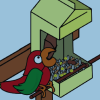
Bird Feeders
Source Institutions
In this activity, learners build a bird feeder or feeders to attract birds for observation.
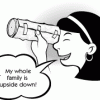
Pringles Pinhole Camera
Source Institutions
An ordinary camera has a lens that makes an image on film. In a pinhole camera, a small hole replaces the lens.
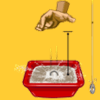
Comet Cratering
Source Institutions
Make impact craters with marbles (or rocks or washers) in a container of flour. Find out what you can learn about your "comets" by the craters they make.
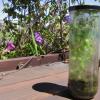
The Self-Watering Terrarium
Source Institutions
In this biology/ecology activity, learners construct a terrarium out of a tennis ball container. This terrarium is unique because it never has to be watered.

Balls and Ramps
Source Institutions
In this activity, learners use simple, everyday materials to experiment with balls and ramps.
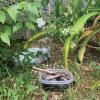
Build A Bee Bath
Source Institutions
In this activity, learners use found natural materials to create a water haven for bees and other insects.
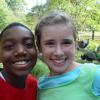
BioBlitz
Source Institutions
In this activity (on page 2 of the PDF under GPS: Biodiversity Activity), learners will pair up and take a notebook outdoors to a selected location to observe and record a list of living things that t

Hit the Spot!
Source Institutions
This is a hands-on activity about the physics of tennis. Learners will discover that physics plays a big part in tennis, no matter what their skill level might be.
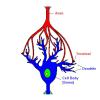
Neuron Chain Tag
Source Institutions
In this outdoor activity, learners play a game of Tag to discover how neurons attach themselves to each other to form a chain.
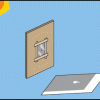
Finding the Size of the Sun and Moon
Source Institutions
In this activity, learners build a simple pinhole viewer. They use this apparatus to project images from a variety of light sources, including a candle, the Sun, and the Moon.
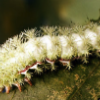
Hungry as a Caterpillar
Source Institutions
In this indoor and outdoor activity, learners discover that insects grow and develop as do all living things, going through a process known as complete metamorphosis.
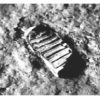
Regolith Formation
Source Institutions
In this three-part activity, learners use food to determine the effects of wind, sandblasting and water on regolith (dust) formation and deposition on Earth.
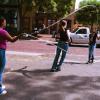
Twirling Rope Frequency
Source Institutions
In this activity (page 1 of the PDF under SciGirls Activity: Double Dutch), learners will stand twelve feet apart swinging a rope at the slowest tempo possible while someone uses a stopwatch to record
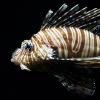
Fishy Observations
Source Institutions
In this activity (page 1 of the PDF under SciGirls Activity: Rabbits), learners will visit a zoo, aquarium, or pet store to view a variety of fish.
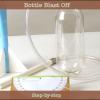
Bottle Blast Off
Source Institutions
With little more than a plastic bottle, some vinyl tubing, and a length of PVC pipe, make a rocket and a rocket launcher and investigate how rockets fly.

Dip Dip, Hooray
Source Institutions
Lakes, streams and other freshwater bodies are a habitat for lots of living things, big and small.
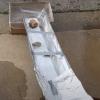
Build An Aqueduct
Source Institutions
In this activity, learners use the design thinking process to design and build their own aqueduct, or water bridge.
River Catcher
Source Institutions
In this activity (located at the top of the page), learners make an easy river strainer and see what they can catch.
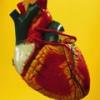
Heart of the Matter
Source Institutions
In this activity, learners explore the concept of valve operation and how engineers have adapted valves for use in mechanical heart valve design.

The Shadow Knows II
Source Institutions
In this activity, learners will measure the length of a shadow and use the distance from the equator to calculate the circumference of the earth.
